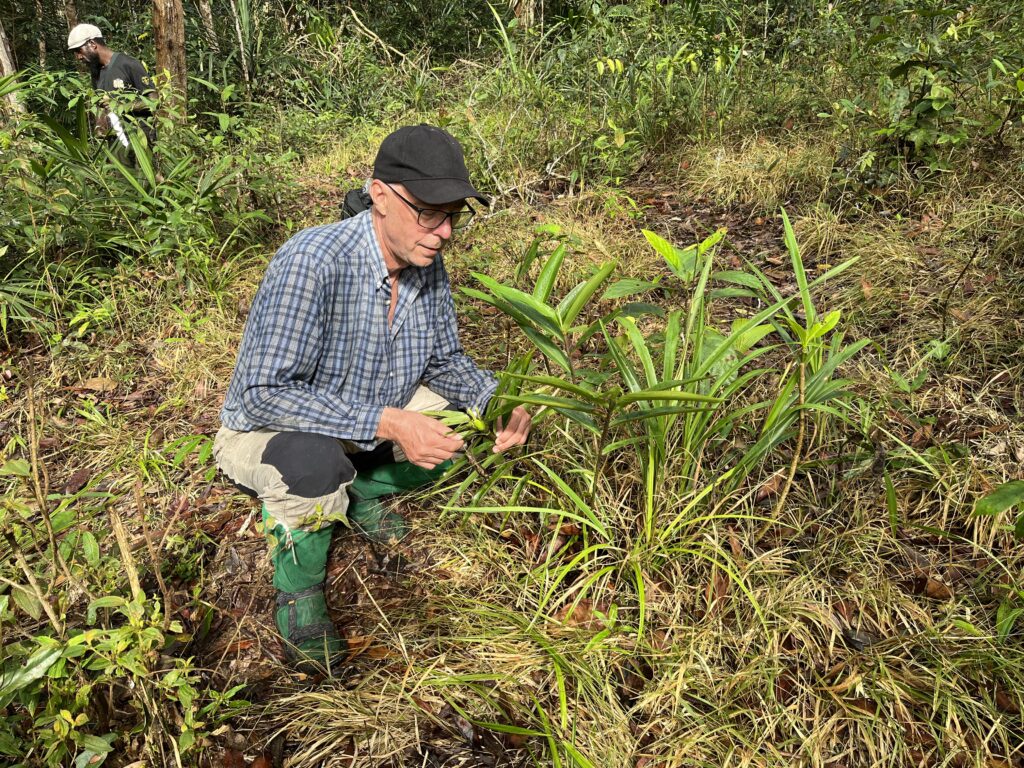SCIENTISTS at the Royal Botanic Garden Edinburgh (RBGE) have worked collaboratively with international partners to describe previously unrecorded species.
Two types of begonia and a rare species of ginger were discovered.
Over the last 12 months, RBGE scientists have combined their work in the Herbarium and research glasshouses in Edinburgh with field research conducted abroad.
The research was carried out in India, Papua New Guinea (PNG) and Malaysia to better understand the needs of habitats in some of the Earth’s most vulnerable biodiversity spots.

Southeast Asia is home to 15% of the world’s tropical forests, with its unique habitats at the forefront of the biodiversity crisis.
However, there is a lack of understanding of the region’s diversity, meaning species are in danger of being lost before they are known or their benefits to mankind are fully understood.
With the support of players of People’s Postcode Lottery (PPL), RBGE and its integrated teams collaborated on a two-pronged approach to modern plant hunting.
They combined digital and traditional fieldwork in a bid to better understand the region’s diversity and the threats that they face to support sustainable conservation action.
Dr Mark Hughes, RBGE’s Taxonomy Research Leader (Southeast Asia) worked online with Indian botanist, Dipankar Borah from Goalpara University, India.
They aimed to make the most of Dipankar’s access to the incredibly rich and well-preserved forests of Arunachal Pradesh in Northeast India.
Despite the challenges of working remotely, Dr Hughes and Dipankar were able to use the best of their resources to describe the new species of begonias.
Dr Mark Hughes said: “Assigning scientific names to species is at the core of biodiversity accounting.
“It is only once a species is named that you can truly investigate what its place is within the environment and therefore how mankind can work to use it or protect it.”
Meanwhile, in Papua New Guinea, RBGE’s gingers specialist, Dr Axel Dalberg Poulsen, and colleagues from the PNG Forest Research Institute used a traditional plant hunting approach.
They navigated crocodiles on the Oriomo River, torrential rains and tropical fevers in the hunt for the enigmatic ginger species, Alpinia fusiformis.
The team’s efforts were worthwhile, as Dr Poulsen was able to export seeds from the plants to allow further research, with the young plants now thriving at RBGE.
Helped by Rudolph Valentino Docot, a PhD student from the Philippines, Dr Poulsen confirmed that the species is not in fact Alpina, as it was recorded for the first time in the 1960s.
Research is ongoing to determine the true nature of the species, and Dr Poulsen will be returning to Papua New Guinea this summer to continue the work.
Dr Poulsen said that he hopes the species can “be a new star of the visitor experience” when the Glasshouses reopen to the public after the Edinburgh Biomes refurbishment.
He added: “The business of collecting plants and ‘plant hunting’ is a challenging and exciting one – often navigating dangerous terrain in the name of biodiversity research.
“There is a very strong motivation driving the work.
“Every new discovery could have a significant material impact on global biodiversity loss, which is one of the biggest climate challenges facing the world today.
“With the support of funders such as PPL, and our international partners, these plants are now part of the greater objective in which we play a part.”
PPL has supported RBGE since 2011 when it began supporting the organisation to carry out its mission of engaging local communities around its four Gardens in Scotland.
Since then, the partnership has evolved further to support RBGE with international conservation projects at home and around the world.

